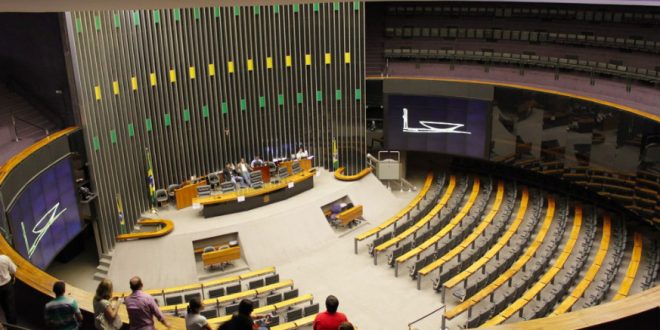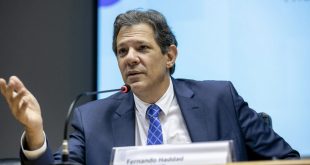Addressing London’s LIDE ‘Brazil Business Leaders’ Conference on 21 April, Senate President Rodrigo Pacheco underscored the fiscal importance of implementing a federal sports betting regime.
The legalisation of sports betting was branded as a key component of President Lula da Silva’s ‘revenue strategy’, which aims to raise “potentially over RL100 bn ($18 bn) in 2023”.
Pacheco revealed that the Senate plans to vote on a sweeping ‘Gambling Expansions Bill’ (442/1991) in May or June, which would legalise casinos, bingo halls, and online gaming across Brazil’s 26 federal states. The Bill is carried separately to the current ‘presidential decree’, which is tasked with implementing a federal regime to regulate and licence online sports betting.
“We have a lot of projects that range from legalising gaming to handling commodities … so we have a lot of projects to discuss … and we believe that we will have more than 100 billion reals that can be generated this year.,” Pacheco said.
“On top of these projects, if we could carry out an administrative reform that could cut public spending, that would be extraordinary,”
However, at home, a stand-off between soccer clubs and the government threatens the progress of sports betting legislation. Eight Brazilian soccer teams, including Botafogo, Corinthians, Flamengo, Fluminense, Palmeiras, Santos, São Paulo, and Vasco da Gama, have requested a higher percentage of revenue from sports betting.
Surprising onlookers, the football clubs have upped their betting income demands to as 5.01% of operators’ gross revenue (GGR). The figure exceeds the 4% request made by the Brazilian Football Confederation (CBF). Currently, the government’s provisional measure proposes that clubs receive 1.63% of net income.
In a letter sent to Finance Minister Fernando Haddad, the clubs warn that they may withhold images and brands if the request is not met, arguing that bettors would lose interest without their participation.
“Without our names, there would be no interest from bettors, so the loss would be for the industry as a whole, as well as for the government,” the clubs stated.
They also propose that payments be made directly to the clubs, without CBF intervention, and that the distributed amount should be proportional to the betting volume on each team’s matches. Additionally, the clubs request that CBF only receive money for national team matches, with no income generated from league matches or tournaments.
“Although the need to regulate economic activities is understood as a way of maintaining economic order and tax collection, this regulation must preserve the economic viability of the activity and safeguard the rights of clubs, under the risk of unbalancing a financially sensitive structure that could have negative and even detrimental effects for the activity,” the clubs said in their letter.
The proposal desired by football clubs estimates a yearly betting income take of between RL12-to-15m ($2.2 to $2.8m) per licence, with the government imposing its tax rate of 15% of gross gaming revenue and a license fee of approximately RL30m ($5.5m) renewable every five years and payable in instalments by licensed bookmakers.
The football clubs believe that their demands will not impede on the government’s aims to generate revenue and address “Brazil’s budget deficits and debts without creating new taxes”.
Sports betting is expected to be taxed at 15% of gross gaming revenue, with additional taxes for social security and municipalities, while the “Gambling Expansion Bill” will propose a 17% tax on casino, bingo, and online gaming revenue (excluding sports betting).
The tax model aims to ensure a sustainable and attractive environment for operators and investors, as well as generate significant income for the Brazilian government.
The resolution of this stand-off will be crucial for the future of sports betting in Brazil, as both the government and football clubs seek to maximise their share of the revenue.
As Pacheco concluded: “Brazil really needs to advance very urgently and very fast so that we can grow.”









